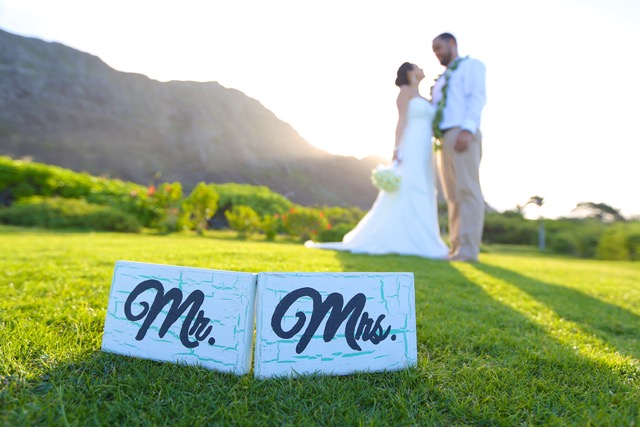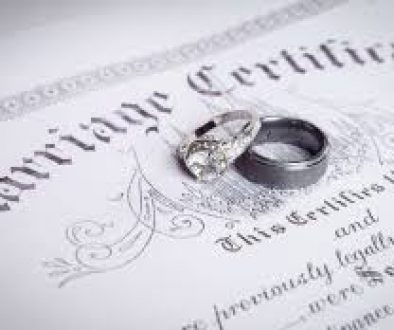Who pays for the wedding? (Traditionally)

Now that you’re engaged your next thought is usually “how are we going to pay for this?” Before we get into the traditional way it’s a little different today. Some couples would never think of asking anyone to help pay for any part of the wedding. On the other hand, their parents are usually so excited to hear the great news that they want to help out however they can. According to the 2020 WeddingWire Newlywed Report, parents come up with about 52% while the couple coughs up about 47%. Loved ones help out with the other 1%. Looks like parents are still paying a bigger piece of the pie, but the couples are covering quite a bit of their own expenses. Younger, Millennial couples born between 1981-1996 pay for less than about 42% while parents pay about 56% of the cost. Gen X couples might cover more like 78% of the expenses while the patents covering about 20%. That being said, from a wedding etiquette POV, money=control. Whoever pays for the wedding should be able to take an active role in the decision-making if they wish. For example, they should be able to add people to the guest list, be listed on the wedding invitation as “hosts” and mentioned during the wedding reception as “hosts/sponsors.”
Traditional Breakdown of Who Pays for What
Bride’s Parents / Family
If were talking the traditional way, the answer to “who pays for the wedding?” is “the bride’s family.” But you’ll see that even in traditional roles, the bride’s family doesn’t actually pay for everything—but they’re definitely a big part of the equation. The bride’s family pays for the wedding venue and vendors, and most products and services related to the day.
- The Wedding Ceremony – venue, décor, and music
- Reception venue
- Catering
- Reception Music
- The Bride’s Attire and Accessories
- Wedding Planner
- Flowers (except for the bride’s bouquet, men’s boutonnieres, and corsages for mothers and grandmothers)
- Stationery – save-the-dates, invitations, ceremony programs, escort cards, etc.
- Favors
- Photography
- Videography
- Transportation
- Wedding Cake
Groom’s Parents / Family
The main responsibility of the groom’s parents is paying for the rehearsal dinner. Traditionally, the groom’s family also pays for the honeymoon but nowadays, the couple is usually taking on those expenses themselves (or setting up a honeymoon registry so guests can contribute).
- Rehearsal Dinner
- Honeymoon (if desired, often the couple themselves pay)
- In some parts of the country, it’s tradition for the groom’s family to pay for the alcohol at the reception.
Groom
While technically the groom is supposed to pay for these wedding costs himself, the groom’s family may help contribute to these expenses.
- Marriage License
- Officiant
- Rings (Engagement Ring and Brides Wedding Band)
- Groomsmen’s Gifts
- Groom’s Attire
- Wedding-Day Gift for His Partner
- The Bride’s Bouquet, Men’s Boutonnieres, and Mothers’ and Grandmother’s Corsages (this is a very traditional way of working out who pays for the wedding – usually the bride’s bouquet and the boutonnieres are paid for by whoever’s handling the total cost of the flowers.)
- Gift for His Parents
- Wedding Night Accommodations
Bride
Similar to the above, while the bride is expected to cover the below costs, her family may help her pay for these expenses.
- Bridesmaid Gifts
- Grooms Wedding Band
- Hair and Makeup for Herself
- Hair and Makeup for Bridesmaids (If the bride requires her bridesmaids to have their hair and makeup professionally done, it is proper etiquette for her to cover the cost.)
- Wedding-Day Gift for Her Partner
- Gift for Her Parents

Wedding Party
The bridesmaids, groomsmen, bridesmen, groomsladies, and other wedding party members do have certain expenses they’ll need to cover, including attire such as bridesmaid dresses and groomsman suits or tuxes, travel, accommodations, gifts, and more.
- Their Attire (In some cases and if budgeting allows, the couple will pay for wedding party members’ attire.)
- Their Travel and Accommodations
- Wedding Gifts for the Couple
- Other Parties – Bachelor/Bachelorette Party, Bridal Shower, etc.
- Hair and Makeup for Bridesmaids (If a bride does not require her bridal party to have professional hair and makeup, the bridesmaids may choose to pay for their own.)
Parents of Flower Girls and Ring Bearers
- Children’s Attire

Article from https://www.weddingwire.com



